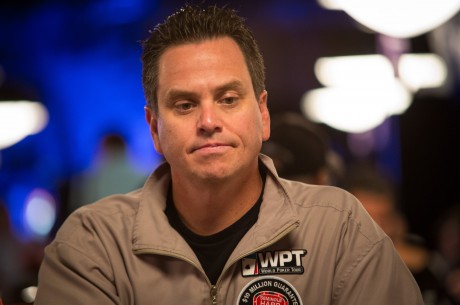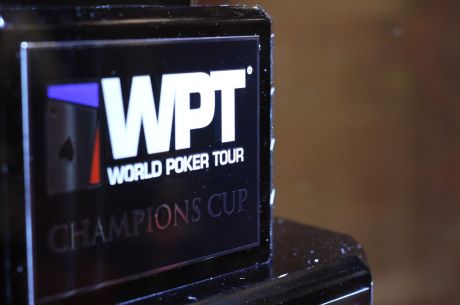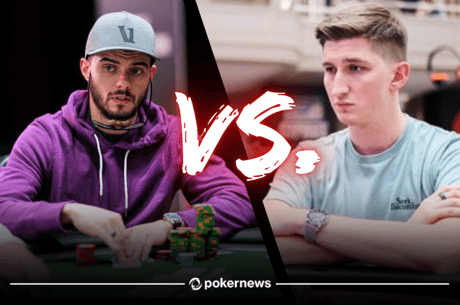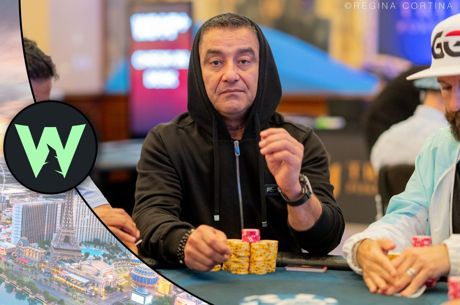One in the Chamber: Firing Once in Reentry Events
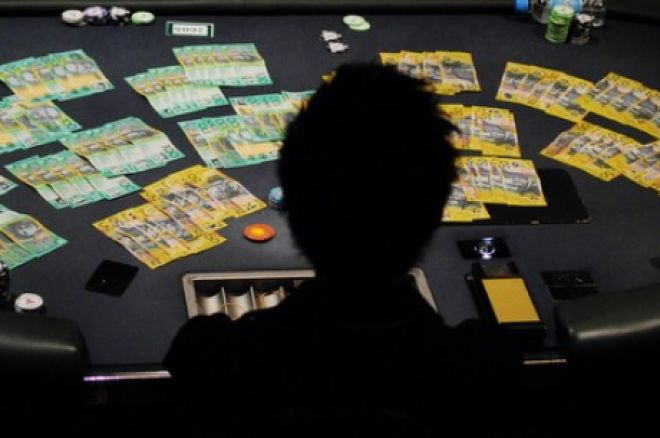
Reentry tournaments are becoming more and more common throughout the tournament circuit. Also not that uncommon is the player who finds him or herself playing in a reentry tournament with an intention only to buy in a single time. A player winning a satellite into such an event might well be in such a position, or perhaps other reasons — including bankroll issues — make buying in only once the preferred option.
Last year I found myself in such a spot when playing a tournament at the Talking Stick Resort in Scottsdale, Arizona — their Annual Winter Poker Classic Championship — and as a result I had to consider the strategic implications of “firing once” in a tournament in which many of my opponents would be entering multiple times.
Lots of options… for others
Boasting a $100,000 guaranteed prize pool and more than $30,000 up top, the Winter Poker Classic is one of the significant events on Arizona’s tournament schedule, but like most “major” events in the poker world these days, the hotly debated reentry format is used to generate such numbers.
In this case, the buy-in and administrative add-ons equated to $355 for a 12,000-chip starting stack, and there were two separate starting flights with a capped field of 400 players each. Upon busting out of Day 1a, players could elect to exercise their unlimited reentry option and pony up an additional $355 for another starting stack. Players could also elect to start fresh on Day 1b in the event things went south on their first crack at building a stack.
Finally, anybody willing to plunk down another $355 during the first six levels (provided their stack sat at or under 12,000) could purchase a one-time “rebuy” of 8,000 chips. This meant that while most players sat with 12,000 to begin the tournament, those with deep pockets could enjoy deeper stacks of 20,000 to start.
Suffice it to say, the reentry format complicated matters somewhat for this simple scribe, as bankroll limitations and travel planning necessitated that I could only a fire a single $355 bullet at this event. With the increased popularity of reentry tourneys, it has become extremely important for new players and savvy veterans alike to consider the implications of a limited arsenal. Although playing a reentry event on a single bullet is obviously less than optimal in terms of expected value, the reality of bankroll management will sometimes dictate that prudence win out over power poker.
What factors, then, should be considered when playing a reentry event shackled by shallow cash reserves?
The reentry dynamic
First off, studying crucial aspects of the tournament (such as the blind structure, length of levels, and composition of field) can put you in better position to parlay one punch into a chance at a championship.
The beauty of a traditional poker tournament is that every player, despite varying levels of skill, begins the game from the exact same circumstances, with equivalent starting stacks and the same fate awaiting all who lose the last of those chips. In a reentry tournament, however, the dynamic is immediately skewed along economic lines, with several players riding double-stacks that have been inflated by rebuys, and many others ready to gamble recklessly, secure in the knowledge that another stack of chips awaits should they happen to fall short.
But for those who will not be firing multiple bullets, understanding how this shift in dynamic affects actual in-game play is integral to surviving the gauntlet of a reentry event’s opening levels.
Who is rebuying, and who isn’t?
Every tournament table is a self-contained environment, so upon taking your seat I suggest paying careful attention to the rest of your tablemates, scanning for evidence of their reentry intentions.
At my table, for example, three of the younger players donning expensive headphones were recognizable as regulars from the $5/$10 NLHE cash games, so I assumed that they would be playing multiple bullets. One middle-aged gentleman went so far as to display his billfold with a flourish while purchasing the dealer appreciation add-on, spreading nearly $2,000 in hundred-dollar bills across the felt to let the rest of us know the score.
“I came to fire away today boys!” the man bellowed, intent on trying to intimidate those with but one bullet to bear. “Better be ready to play big!”
As it turned out, despite having the bankrolls to do so, the trio of younger players all elected to stick with their 12,000 starting stacks, and the brash braggart would be the lone recipient of the 8,000-chip rebuy.
Armed with 20,000 from the jump, and blinds starting at a comfortable 25/50 for thirty minutes, the big-stack bully made good on his promise, routinely opening the action with overbets of up to eight times the big blind. Other times, the man would play the pot in standard fashion to the river, only to wager 10,000 or so with just a few thousand in the pot, effectively setting anybody left in contention all in for their (first) tournament life.
Anticipating situations like this occurring is important to surviving reentry tournaments on a single bullet, because more often than not there will be a player behaving like this at your first table. Knowing that there are always more chips at the cashier’s cage can embolden even bad players, freeing them to make spectacular bluffs while applying pressure at will. If you can pick your spots wisely and resist the temptation to play back at the bully with a mediocre holding, one clean double-through will turn the tables, leaving you with twice the starting stack and in position to make a deep run.
Pick a spot versus the reckless reenterer
In my case, I waited patiently until Level 4 before springing my trap on the hyper-aggressive player, who at this point had pushed his stack to nearly 40,000 chips. Holding Q♣Q♥ on the button, I watched the bully make yet another huge opening raise, this time making it 2,000 to play with the blinds at 100/200. When I three-bet to 6,000, putting more than half of my stack at risk before the flop, the intent was to signal that I was pot committed, and that a four-bet to push me around simply wouldn’t work.
Unfortunately, my opponent had a similar level of attachment to his own chips, all of which went into the middle promptly after my reraise. I never thought for a second that my hand was second-best given the man’s unpredictable play, and soon I was all in and at risk. Sure enough he revealed just K♦9♣. Despite finding himself to be nearly a 3-to-1 underdog against my premium pocket pair, the flop brought the “suicide king” — K♥ — to send me home with an early exit.
When you decide to play a reentry event on a single bullet, preparing yourself for this ignoble outcome is essential, because more often than not the disadvantage in terms of chips and bankroll will come into play. Obviously, the best hand holds up as often as it should from a statistical standpoint, but you’ll be forced to survive the swinging of five board cards much more often against reckless reenterers.
Get all the latest PokerNews updates on your social media outlets. Follow us on Twitter and find us on both Facebook and Google+!


